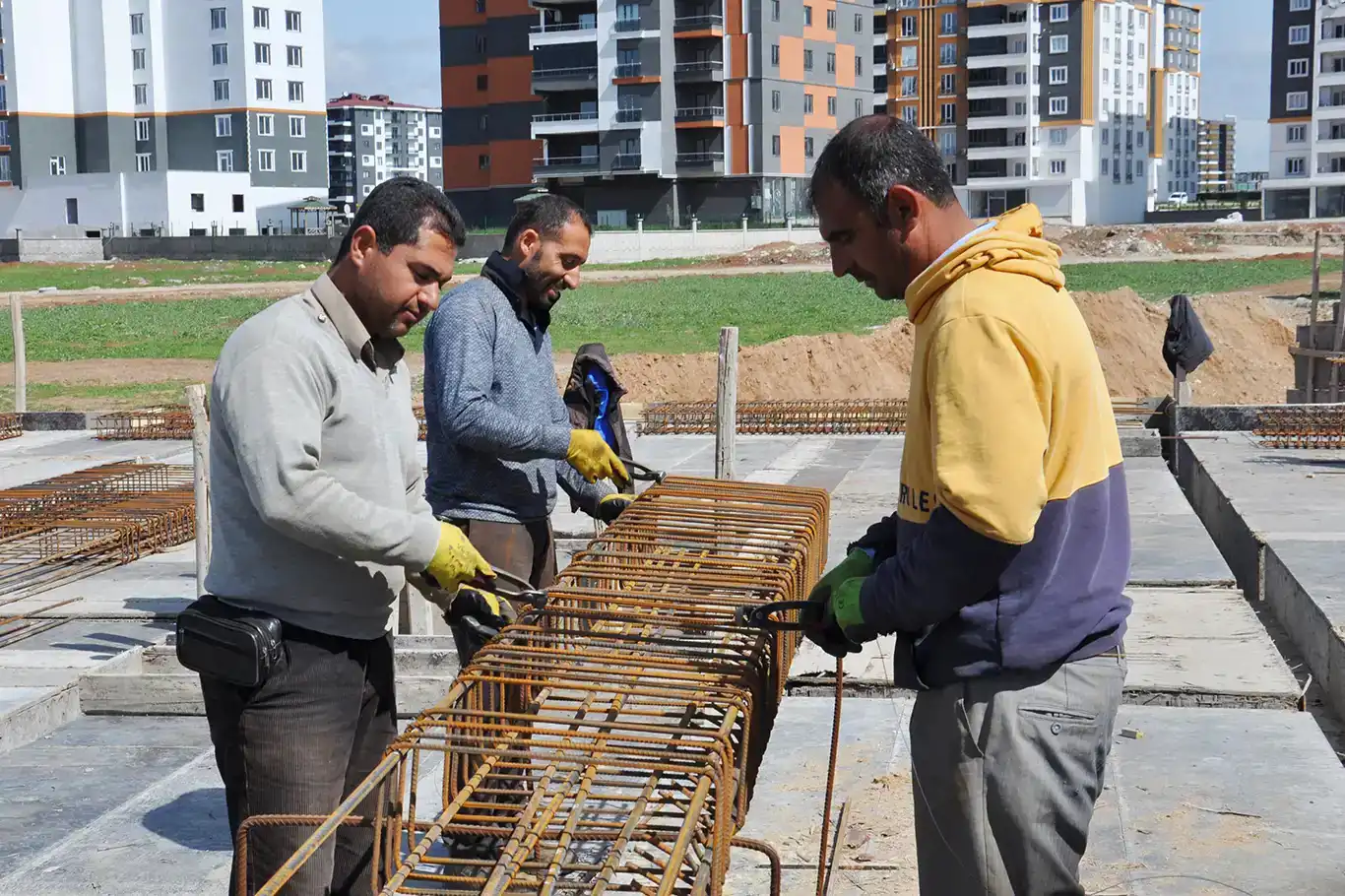Turkish labor market sees growth and increased costs in Q3 2024


The Turkish economy saw significant growth in several key employment and wage indicators during the third quarter of 2024.
According to recent data, the employment index, which encompasses the industrial, construction, and trade-services sectors, increased by 3% compared to the same period last year.
Breaking down the figures by sector, the industrial sector experienced a slight decrease of 0.5%, while the construction sector saw a robust 7.4% growth. The trade-services sector also posted a notable increase of 4.1%.
Despite the rise in employment, the hours worked index showed a slight decline, dropping by 1.1% year-on-year. The industrial sector reported the most significant decrease, with a 4.1% drop in hours worked. However, the construction sector bucked the trend with a 2.8% increase, while the trade-services sector remained largely stable with a minor decline of 0.2%.
In terms of wages, the gross wages-salaries index surged by 74.7% compared to the previous year. All sectors saw significant increases: the industrial sector rose by 73.9%, the construction sector also by 73.9%, and the trade-services sector by 75.2%.
Quarterly comparisons also indicate growth in various employment and wage metrics. The employment index rose by 0.8% from the second to the third quarter of 2024, with the industrial sector increasing by 0.2%, the construction sector by 1.3%, and the trade-services sector by 1%.
The hours worked index grew by 0.4% compared to the previous quarter, with the industrial sector seeing a modest increase of 0.2%, while the construction sector posted a stronger rise of 2.6%. The trade-services sector, however, showed no change.
Gross wages and salaries continued to rise, with an 8.8% increase in the third quarter compared to the second. The construction sector saw the highest quarterly growth at 9.3%, followed closely by the trade-services sector at 9.2% and the industrial sector at 8.1%.
Additionally, hourly labor cost indices also saw significant increases. The hourly labor cost index rose by 76.9% year-on-year, with the industrial sector experiencing the largest rise of 82%. The construction sector's hourly labor cost increased by 69.9%, while the trade-services sector saw a 75.5% increase.
Hourly earnings also experienced a significant year-on-year jump of 76.6%. The industrial sector led the growth with an 81.4% increase, followed by the trade-services sector at 75.5% and the construction sector at 69.1%.
Excluding earnings, the hourly labor cost index surged by 78.2% year-on-year, with the industrial sector seeing the highest increase at 85%. Both the construction and trade-services sectors also saw notable growths of 73.5% and 75.4%, respectively.
In terms of quarterly growth, the hourly labor cost index rose by 9%, with the industrial sector increasing by 8.9%, the construction sector by 6.9%, and the trade-services sector by 9.5%. Hourly earnings increased by 8.4%, with the industrial sector seeing a 7.8% increase, construction growing by 6.5%, and trade-services posting a 9.2% rise.
The hourly labor cost excluding earnings saw the largest quarterly increase, rising by 12%. The industrial sector led with a 14.5% rise, followed by the trade-services sector at 10.9%, and the construction sector at 8.8%.
These statistics underscore the continuing growth in the Turkish labor market, with particular gains in construction and trade-services, although the industrial sector faced challenges in terms of hours worked and labor costs. (ILKHA)
LEGAL WARNING: All rights of the published news, photos and videos are reserved by İlke Haber Ajansı Basın Yayın San. Trade A.Ş. Under no circumstances can all or part of the news, photos and videos be used without a written contract or subscription.
The Turkish Statistical Institute announced on Friday that indirect R&D tax incentives have surged to 59.3 billion TRY in 2023, marking a significant increase of 126.7% from the previous year's 26.2 billion TRY.
The Ministry of Industry and Commerce announced that Afghanistan’s trade volume with Türkiye reached $94 million in the first ten months of 2024.
The Turkish Statistical Institute announced on Thursday that the floor area of buildings given construction permits decreased by 18.9% in the third quarter of 2024 compared to the same period the previous year.